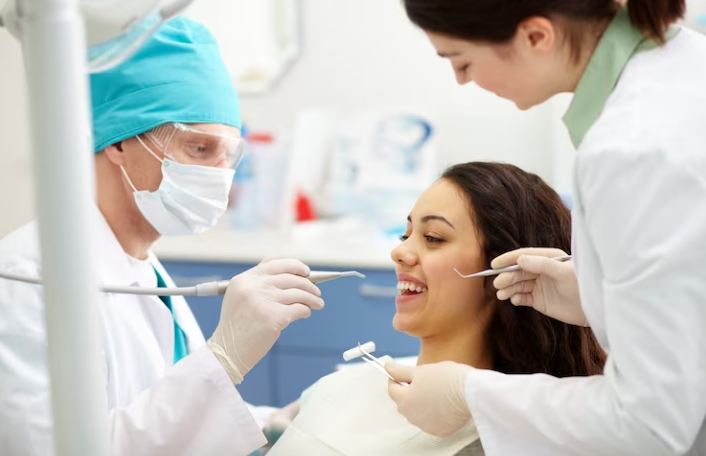A dental emergency can be a distressing and painful experience, requiring immediate attention to alleviate discomfort and prevent further complications. When faced with a dental emergency, knowing what to do before reaching Summit Family Dentistry can make all the difference in preserving your oral health. In this blog, we will provide you with essential tips and guidelines on how to handle common dental emergencies before seeking professional care at Summit Family Dentistry.
Understanding Dental Emergencies
Dental emergencies can occur suddenly and unexpectedly, leaving you unsure of how to respond. Some common dental emergencies include:
1. Toothache
Severe toothache can be a sign of an underlying issue, such as tooth decay or an abscess.
2. Chipped or Fractured Tooth
A chipped or fractured tooth requires immediate attention to prevent further damage.
3. Knocked-Out Tooth
A knocked-out tooth can sometimes be saved if handled promptly and correctly.
4. Loose or Dislodged Tooth
A loose or dislodged tooth needs immediate evaluation to determine the extent of the injury.
5. Abscessed Tooth
An abscessed tooth can cause severe pain and swelling and requires urgent care to prevent the infection from spreading.
What to Do in a Dental Emergency
1. Stay Calm
During a dental emergency, it's crucial to stay calm and composed. Panicking can make the situation more challenging to handle.
2. Assess the Situation
Carefully assess the dental emergency to determine the severity of the issue. This will help you provide the necessary information to Summit Family Dentistry when you contact them.
3. Contact Summit Family Dentistry
As soon as possible, reach out to Summit Family Dentistry to inform them of the dental emergency. Their experienced team can provide guidance on the next steps and schedule an urgent appointment if necessary.
4. Toothache
If you are experiencing a toothache, rinse your mouth with warm water to clean the area. Gently floss around the affected tooth to remove any trapped debris. Avoid placing aspirin or any pain-relieving medication directly on the gum or tooth, as it may cause irritation.
5. Chipped or Fractured Tooth
If a tooth is chipped or fractured, rinse your mouth with warm water to clean the area. If there is any bleeding, apply gentle pressure with a clean cloth or gauze. Use a cold pack or ice wrapped in a cloth to reduce swelling.
6. Knocked-Out Tooth
If a tooth has been knocked out, hold it by the crown (the top part) and gently rinse it with water if it's dirty. Do not scrub or remove any tissue fragments. If possible, place the tooth back into its socket and hold it in place with clean gauze or cloth. If you cannot reinsert the tooth, place it in a container of milk or your saliva to keep it moist.
7. Loose or Dislodged Tooth
If a tooth is loose or dislodged, try to gently push it back into its original position without forcing it. Bite down on clean gauze or cloth to keep it in place.
8. Abscessed Tooth
If you suspect an abscessed tooth, avoid applying heat to the affected area as it can worsen the swelling. Rinse your mouth with mild saltwater to help reduce inflammation and pain.
Preventing Dental Emergencies
While some dental emergencies are unavoidable, there are steps you can take to minimize the risk of experiencing one:
- Maintain good oral hygiene practices, including brushing twice a day and flossing daily.
- Wear a mouthguard during sports and other physical activities to protect your teeth from injury.
- Avoid using your teeth to open packages or chew on hard objects.
- Schedule regular dental check-ups and cleanings at Summit Family Dentistry to address any dental issues before they become emergencies.
Conclusion
Knowing how to handle a dental emergency before reaching Summit Family Dentistry is essential for preserving your oral health and alleviating discomfort. Stay calm, assess the situation, and contact Summit Family Dentistry for prompt guidance and care. Remember that timely action can make a significant difference in the outcome of a dental emergency. By following preventive measures and seeking regular dental care, you can reduce the risk of dental emergencies and maintain a healthy and radiant smile for years to come.


No comments yet